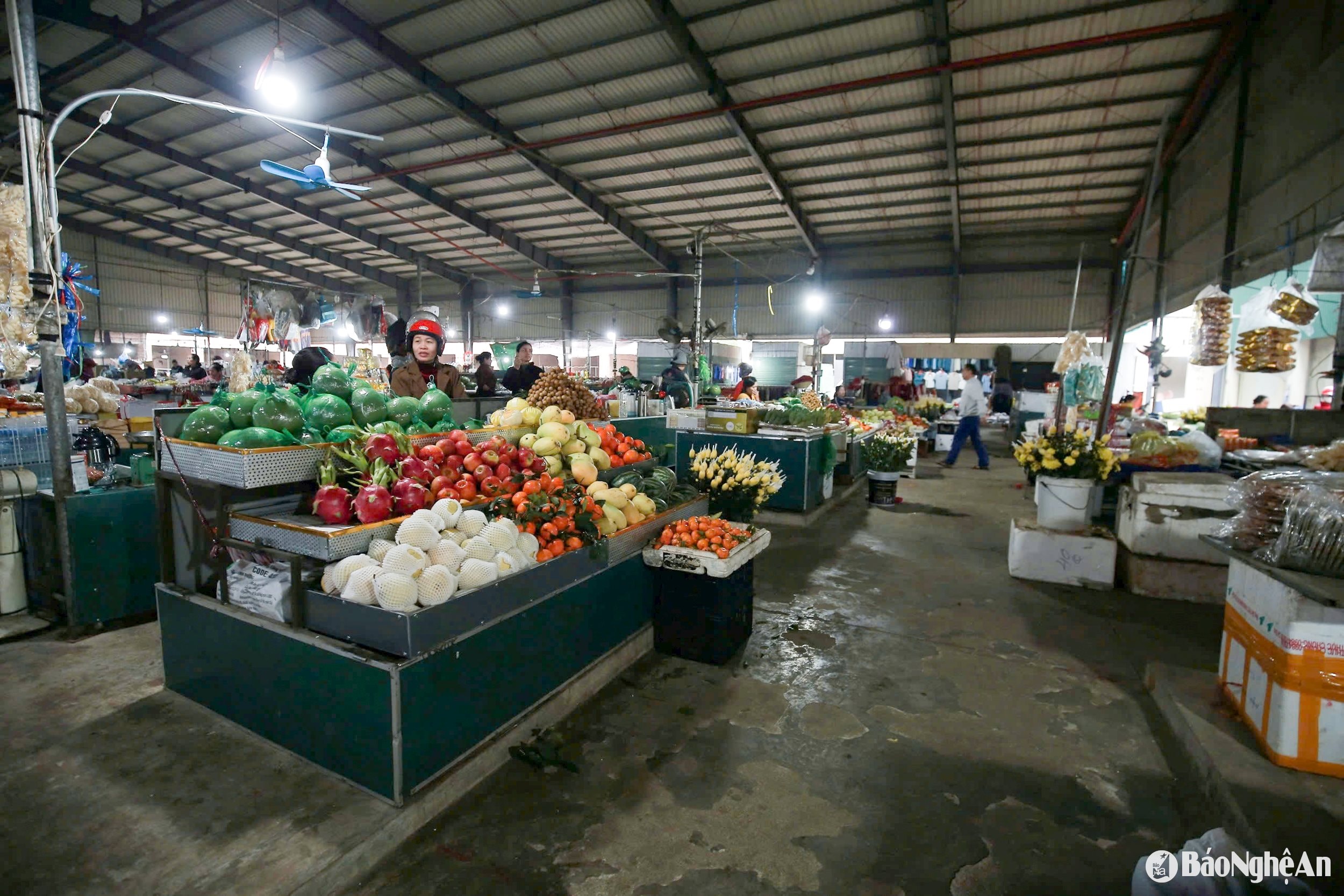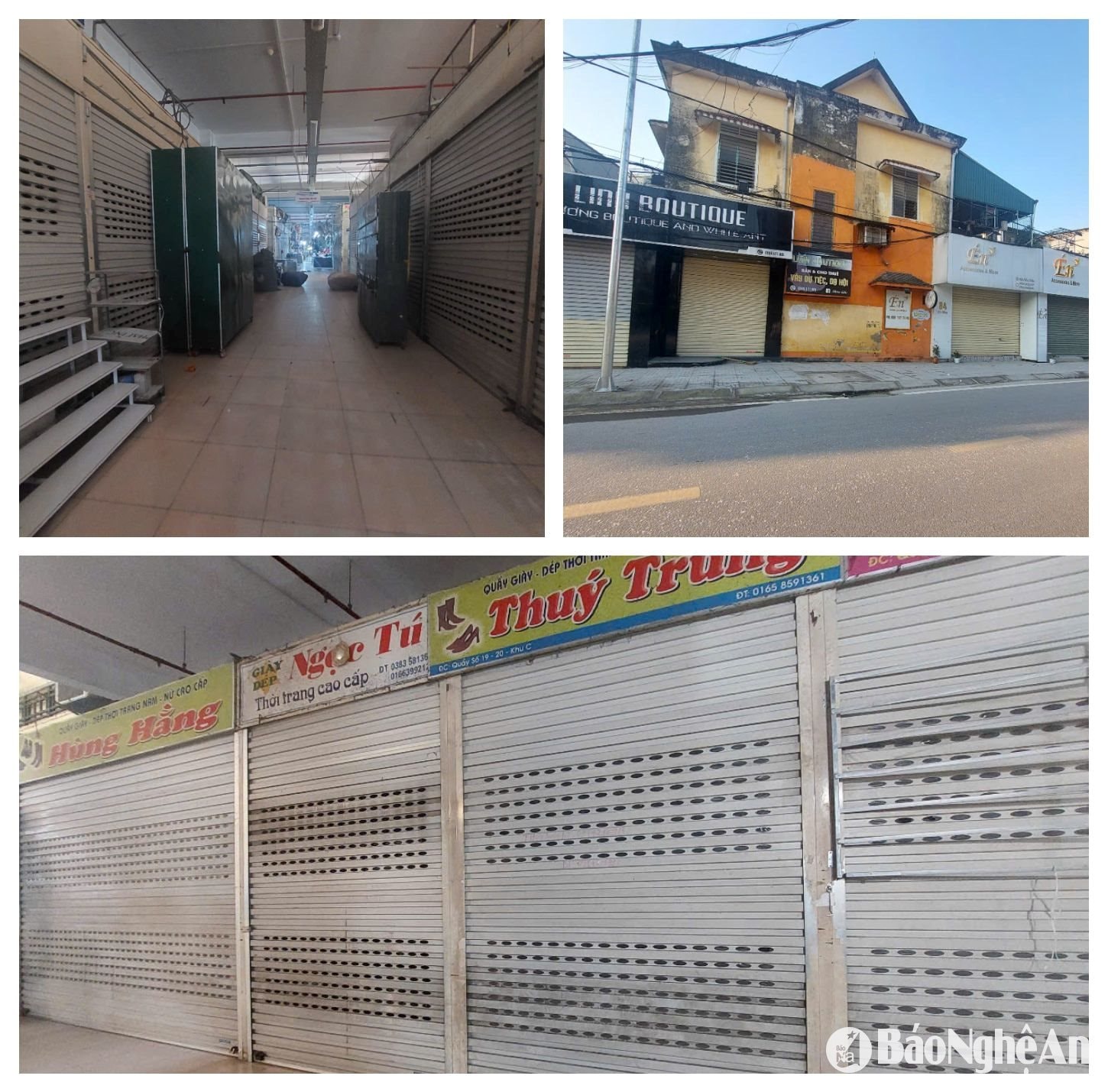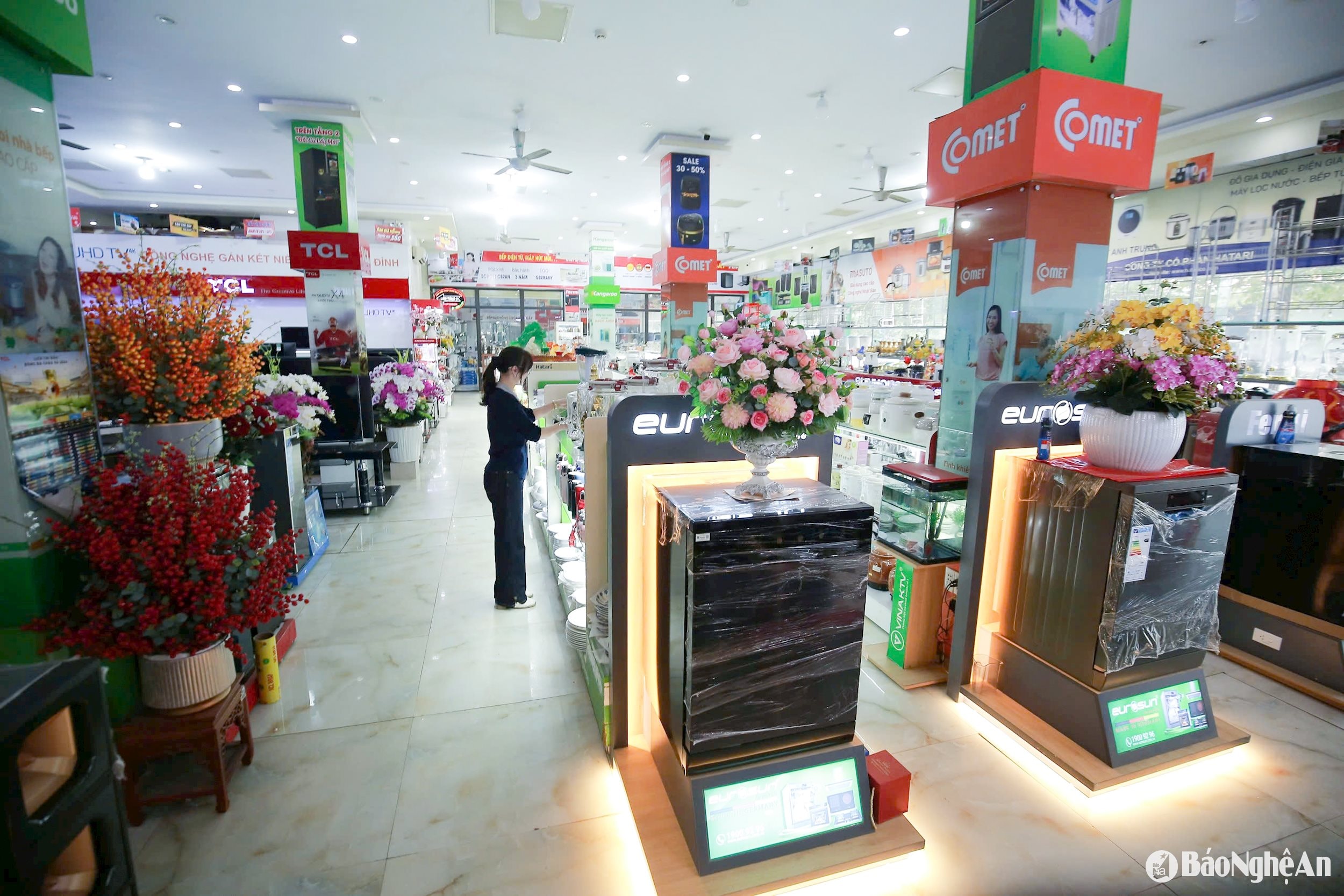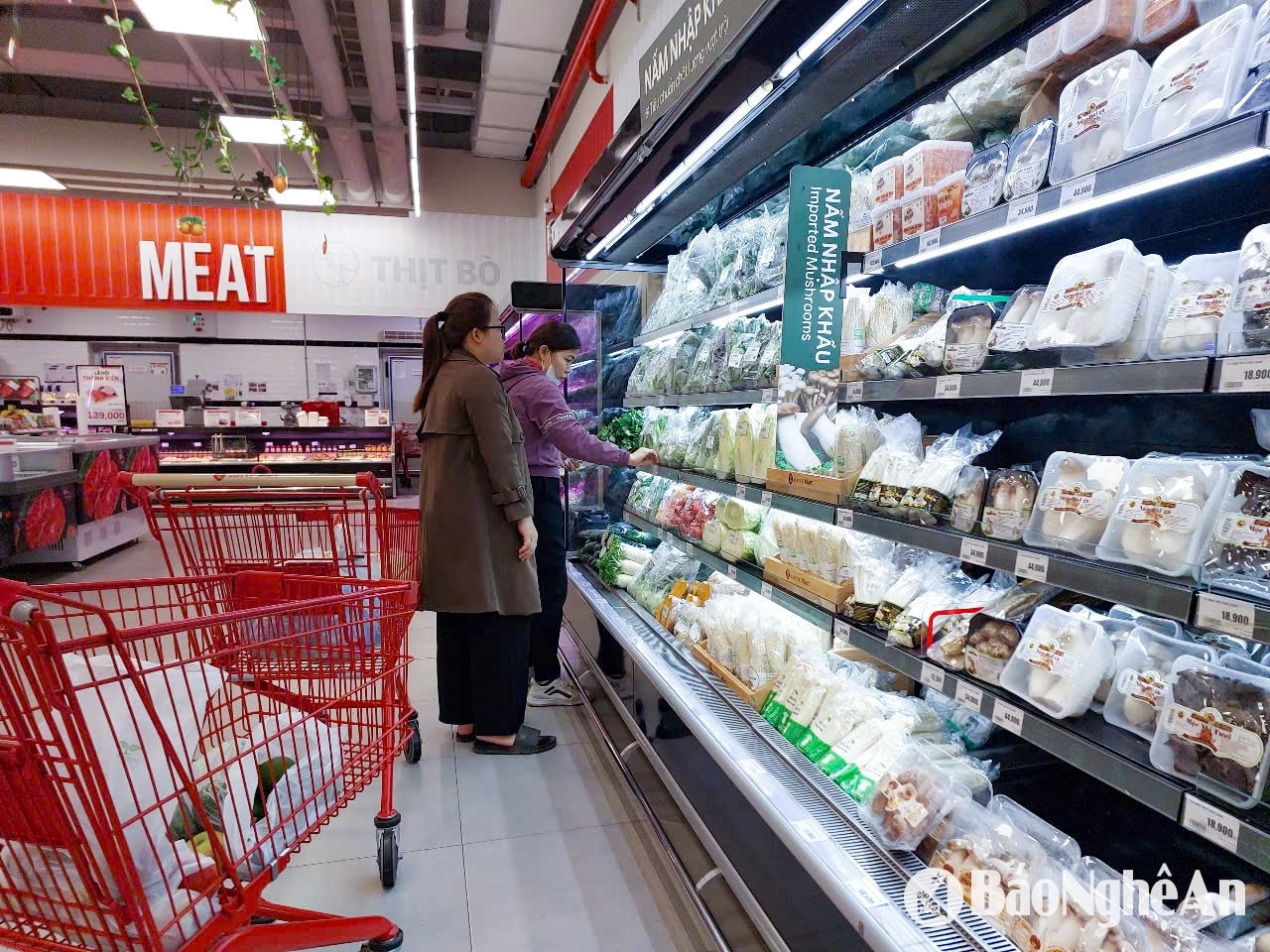Deserted markets and supermarkets in Nghe An have few customers.
The retail market in Nghe An is going through a difficult period as purchasing power has dropped sharply. Many small traders and businesses are struggling to find ways to cope...
.jpg)
Although it was the weekend, Vinh market – considered the shopping center of the area – was quite deserted. On the first floor of the main hall, where many industries were concentrated: Western medicine, household appliances, household appliances, clothing, shoes, etc., very few people passed by and bought and sold.
Ms. Nguyen Thanh, a clothing retailer on the first floor of Vinh Market's main hall, said: "Although it is the season change, we have imported summer clothes to supply the market, but currently, purchasing power is very weak in both retail and wholesale. If in previous years, at this time, we had to increase our staff to close orders and pack goods for wholesale customers in the province and outside the province, now, because retail traders in other places are also slow, they are taking goods in moderation."
.jpg)
According to Ms. Thanh, in order to adapt to people's tastes and shopping trends, in addition to selling directly at the market stall, she also fully utilizes Zalo and Facebook channels, employees are assigned to livestream, close orders, answer, and advise customers... but at this time, revenue is still very low due to the general decrease in purchasing power.
As a famous fashion shoe dealer in Sen market (Nam Dan), Ms. Nguyen Mai Huong used to have a revenue of 3 million VND/day with 100 wholesale and retail orders. However, in the past three years, especially in early 2025, revenue has decreased significantly. Many days, the stall is open from morning to late afternoon and only a few individual customers come to buy, and some days, she can't sell a single pair. "It's so slow! The stall is open, the goods are prepared, but there are days when no one asks to buy," Ms. Mai Huong sighed.

Not only fashion products, other industries are also in a state of sluggish sales. In markets such as Vinh market, Hung Dung market, Quan Lau market, Ga Vinh market, Coi market... since the 15th day of the first lunar month until now, they have been closed quietly, some have hung up signs for transfer or rent.
Walking around the markets, the most common scene is that of vendors sitting around scrolling through their phones or sitting in groups chatting because they are "all unsold". According to preliminary statistics, currently at Quan Lau market, Vinh train station market, Coi market, about 30% of kiosks are closed; Vinh market about 20%...

Although it is a food product, many small traders are also suffering from the lack of customers. Ms. Le Thi Anh, a pork trader at Coi market (Vinh city) said: "Partly because of the high price of live pigs and meat, people have switched to buying other types of food. Mostly because of the current economic difficulties, income has decreased, so people have tightened their spending, leading to a decrease in purchasing power.
Normally, the time after Tet is usually low, but I didn't think it would be so slow this year. Previously, around 10am, about 50kg of pork was sold out, but for nearly 2 months now, it has had to be extended to the afternoon market and sometimes the goods are still not sold out."

Similarly, the number of customers coming to supermarkets and shopping malls at this time also decreased sharply. At electronics supermarkets such as Dien May Xanh, Nguyen Kim, Hong Ha... (Vinh City), although the season has changed, the demand for fans, air conditioners, refrigerators... has decreased sharply; the number of customers coming to shop can be counted on the fingers.
Even supermarkets that sell essential goods such as Bach Hoa Xanh, Go! Vinh, LotteMart... have seen a decrease in customers and sales. Ms. Nguyen Thuy, Operations Manager of a supermarket in Vinh City, said: "Although we know that purchasing power will decrease during the low season, this year it has decreased sharply compared to previous years."
Business owners say that, as is customary, while purchasing power increases during Tet, the first months of the year are often gloomy because consumer demand decreases. The decrease in purchasing power causes business activities to fall into a difficult situation.

However, this year, the sluggish situation that lasted until mid-March has not improved, so businesses and traders are struggling to find ways to cope. Accordingly, traders in the markets have both sold directly and switched to selling online, listed prices publicly, and accepted low profits to waive free shipping; supermarkets have launched many attractive promotional programs to stimulate shopping... with the expectation that in the coming time, purchasing power will increase and the market will soon return to stability to facilitate business./.

